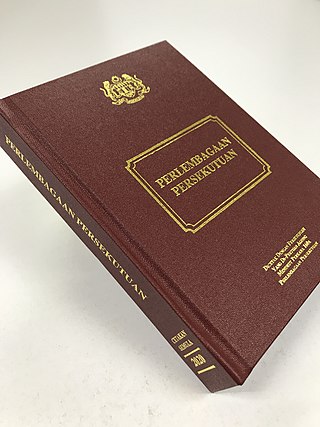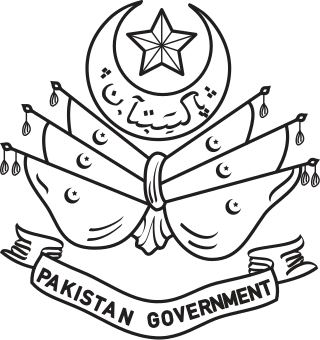
The Malayan Union was a union of the Malay states and the Straits Settlements of Penang and Malacca. It was the successor to British Malaya and was conceived to unify the Malay Peninsula under a single government to simplify administration. Following opposition by the ethnic Malays, the union was reorganised as the Federation of Malaya in 1948.

The Federation of Malaya was a federation of what previously had been British Malaya comprising eleven states that existed from 1 February 1948 until 16 September 1963. The Federation became independent on 31 August 1957, and in 1963, Malaysia was formed when Malaya united with Singapore, North Borneo, and Sarawak.
In Malaysia, the Yang di-Pertua Negeri is a constitutional title given to the head of state in states without a Ruler, namely: Penang, Malacca, Sabah and Sarawak. This is in contrast to a Ruler which is a constitutional title given to states with hereditery monarchies, namely: the Sultans of Johor, Kedah, Kelantan, Pahang, Perak, Selangor and Terengganu; the Raja of Perlis: and the Yang di-Pertuan Besar of Negeri Sembilan.

The Federal Constitution of Malaysia, which came into force in 1957 as the Constitution of the Federation of Malaya and was amended in 1963 to form the Constitution of Malaysia, is the supreme law of Malaysia and contains a total of 183 articles. It is a written legal document influenced by two previous documents, the Federation of Malaya Agreement 1948 and the Independence Constitution of 1957. The Federation was initially called the Federation of Malaya and it adopted its present name, Malaysia, when the states of Sabah, Sarawak and Singapore became part of the Federation. The Constitution establishes the Federation as a constitutional monarchy, having the Yang di-Pertuan Agong as the Head of State with largely ceremonial roles. It provides for the establishment and organisation of three main branches of the government: the bicameral legislative branch called the Parliament, which consists of the House of Representatives and the Senate ; the executive branch led by the Prime Minister and his Cabinet Ministers and the judicial branch headed by the Federal Court.

Indian nationality law details the conditions by which a person holds Indian nationality. The two primary pieces of legislation governing these requirements are the Constitution of India and the Citizenship Act, 1955.

A British Overseas citizen (BOC) is a holder of a residual class of British nationality, largely held by people connected with former British colonies who do not have close ties to the United Kingdom or its remaining overseas territories. Individuals with this form of nationality are British nationals and Commonwealth citizens, but not British citizens. BOCs are subject to immigration control when entering the United Kingdom and do not have the automatic right of abode there or in any British overseas territory.

Radio Televisyen Malaysia, also known as the Department of Broadcasting, Malaysia is the national public broadcaster of Malaysia. Established on 1 April 1946 as Radio Malaya, it is the first and the oldest broadcaster in the country. After Malaysia was formed on 16 September 1963, Radio Malaya was renamed Radio Malaysia. On 28 December the same year, television service in Malaysia began with the establishment of Televisyen Malaysia. In 1969, Radio Malaysia and Televisyen Malaysia merged to form the present-day broadcast department. Radio Televisyen Malaysia monopolised the free-to-air television until 1984 and radio until 1988, when private television and radio stations such as TV3 and Best FM begin to exist. Currently, it operates 6 television channels and 34 radio stations nationwide.

Belonger status is a legal classification normally associated with British Overseas Territories. It refers to people who have close ties to a specific territory, normally by birth or ancestry. The requirements for belonger status, and the rights that it confers, vary from territory to territory.

Australian nationality law details the conditions by which a person is a national of Australia. The primary law governing nationality regulations is the Australian Citizenship Act 2007, which came into force on 1 July 2007 and is applicable in all states and territories of Australia.

British nationality law as it pertains to Hong Kong has been unusual ever since Hong Kong became a British colony in 1842. From its beginning as a sparsely populated trading port to today's cosmopolitan international financial centre and world city of over seven million people, the territory has attracted refugees, immigrants and expatriates alike searching for a new life.

This article concerns the history of British nationality law.

The term "British Malaya" loosely describes a set of states on the Malay Peninsula and the island of Singapore that were brought under British hegemony or control between the late 18th and the mid-20th century. Unlike the term "British India", which excludes the Indian princely states, British Malaya is often used to refer to the Federated and the Unfederated Malay States, which were British protectorates with their own local rulers, as well as the Straits Settlements, which were under the sovereignty and direct rule of the British Crown, after a period of control by the East India Company.

The right of abode (ROA) is an immigration status in the United Kingdom that gives a person the unrestricted right to enter and live in the UK. It was introduced by the Immigration Act 1971 which went into effect on 1 January 1973. This status is held by British citizens, certain British subjects, as well as certain Commonwealth citizens with specific connections to the UK before 1983. Since 1983, it is not possible for a person to acquire this status without being a British citizen.

Singaporean nationality law details the conditions by which a person holds Singapore nationality. The primary law governing nationality requirements is the Constitution of Singapore, which came into force on 9 August 1965.

The Malaysian Bar is a professional body which regulates the profession of lawyers in peninsular Malaysia. In Malaysia, there is no distinction between a barrister and a solicitor, in that, it is a fused profession. Membership into the Bar is automatic and mandatory. The bar was created under the Legal Profession Act 1976. Like other bar associations around the world, it has a wide range of functions, including, to protect the reputation of the legal profession, to uphold the cause of justice, to express its views on matters relating to legislations, and others.

British nationality law prescribes the conditions under which a person is recognised as being a national of the United Kingdom. The six different classes of British nationality each have varying degrees of civil and political rights, due to the UK's historical status as a colonial empire. The primary class of British nationality is British citizenship, which is associated with the United Kingdom itself and the Crown dependencies. Foreign nationals may naturalize as British citizens after meeting a minimum residence requirement and acquiring settled status.

Pakistani nationality law details the conditions by which a person holds Pakistani nationality. The primary law governing nationality regulations is the Pakistan Citizenship Act, 1951, which came into force on 13 April 1951. With few exceptions, almost all individuals born in the country are automatically citizens at birth. Foreign nationals may naturalise as Pakistani citizens after residing in the country for at least five years and showing proficiency in at least one vernacular language of Pakistan.

Peninsular Malaysia, historically known as Malaya, also known as West Malaysia or the Malaysian Peninsula, is the part of Malaysia that occupies the southern half of the Malay Peninsula in Southeast Asia and the nearby islands. Its area totals 132,490 km2 (51,150 sq mi), which is nearly 40% of the total area of the country; the other 60% is in East Malaysia. It shares a land border with Thailand to the north and a maritime border with Singapore to the south.

The Nationality, Immigration and Asylum Act 2002 is an Act of the Parliament of the United Kingdom. It received royal assent on 7 November 2002.

Malaysians are citizens who are identified with the country of Malaysia. Although citizens make up the majority of Malaysians, non-citizen residents and overseas Malaysians may also claim a Malaysian identity.














